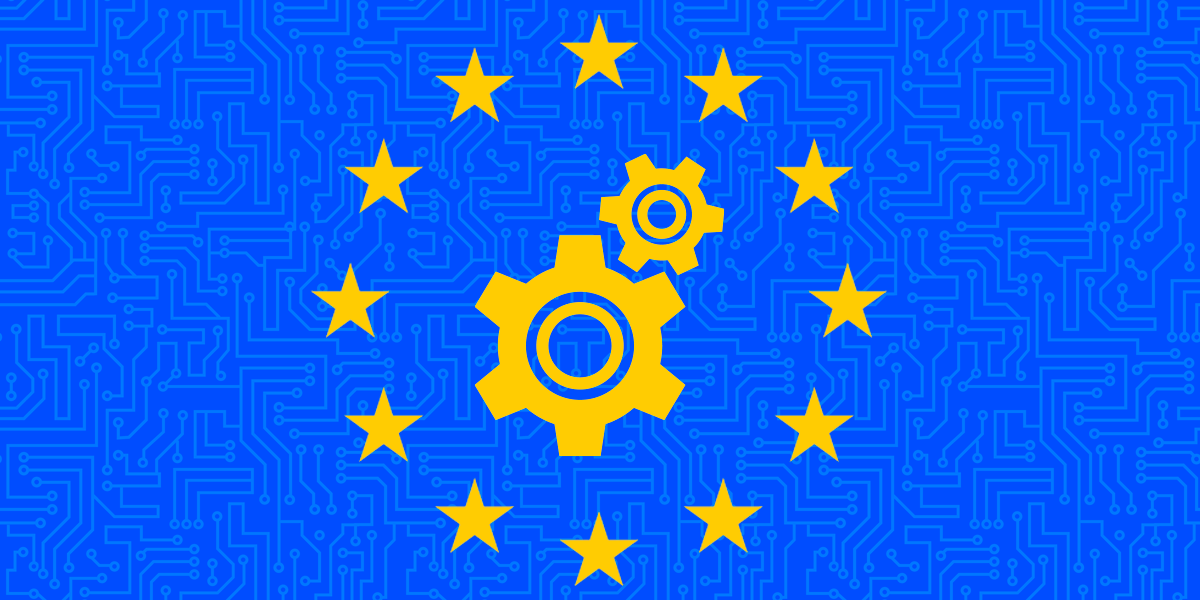The Digital Markets Act must do more to protect end users’ rights
As the European Commission sets out plans for a Digital Markets Act, EDRi calls for the protection of users’ human rights to be at the centre of plans to regulate the role platform gatekeepers play in the future of Europe’s digital environment.

Designed by: Electronic Frontier Foundation
In an open letter published today, EDRi and a coalition of civil society organisations and digital rights defenders urge the European Parliament and Council to enshrine these values in the DMA. The coalition was led by our member organisation ARTICLE 19.
“If the EU wants to promote an open and competitive digital environment in which users have real choices, it needs to put people at the heart of the DMA. It is not too late to free the digital public sphere from the clutches of big tech’s ‘walled gardens’. But to do that we need bold legislative action.” said Jan Penfrat, Senior Policy Advisor at EDRi.
The coalition welcomes the focus on improving the way digital markets work, but warns of a number of shortcomings in the current proposal. The power of market gatekeepers to exploit end users must be addressed, and we urge the EU Parliament and Council to take a holistic approach to the Digital Markets Act, and the complementary Digital Services Act, to address these gaps.
“It is unacceptable that EU regulators want to protect business users more than end users in the Digital Single Market. We believe this to be a substantial gap, and we call on the European Parliament and on the EU’s Council of Ministers not to miss this opportunity to better protect users rights online,” said Maria Luisa Stasi, Senior Legal Officer at ARTICLE 19
The DMA focuses too little on individual end users
Currently, gatekeepers can dictate a quality standard in the market that affects, among other things, the protection of users’ data, their right to freedom of expression and their right not to be discriminated against. There is too little focus on end users’ in the DMA, which concentrates on the relationship between the core platforms and their business users. This is a significant missed opportunity to better protect EU users’ rights online.
The current proposal leaves power concentrated in the hands of a few gatekeepers
Rules in the DMA seem to aim at building the conditions for more competition at the business users’ level, rather than to create conditions for more platforms to enter the market or give end users more choice between platforms. By narrowing the focus on contestability and entry for business users, the proposed Regulation seems to accept the status quo for core gatekeeper platforms. Leaving this strongly centralised environment intact leaves a few platforms with too much power over users’ rights and over the flow of information in society. The DMA must not simply accept the current state of dominance of a small number of gatekeepers in the market.
Background
The Digital Markets Act (DMA) and the Digital Services Act (DSA) are the European Commission’s legislative proposals to tackle the complex challenges facing the EU Digital Single Market. These challenges are economic, social, and political in nature and adequately solving them is key to guaranteeing the future of EU democracies and respect for the EU’s fundamental values.
The DMA focuses on gatekeepers’ behaviours and their impact on market dynamics, while the DSA seeks to consolidate various separate pieces of EU legislation and self-regulatory practices that address online illegal or ‘harmful’ content and to harmonise the rules applicable to the provision of digital services across the EU.
